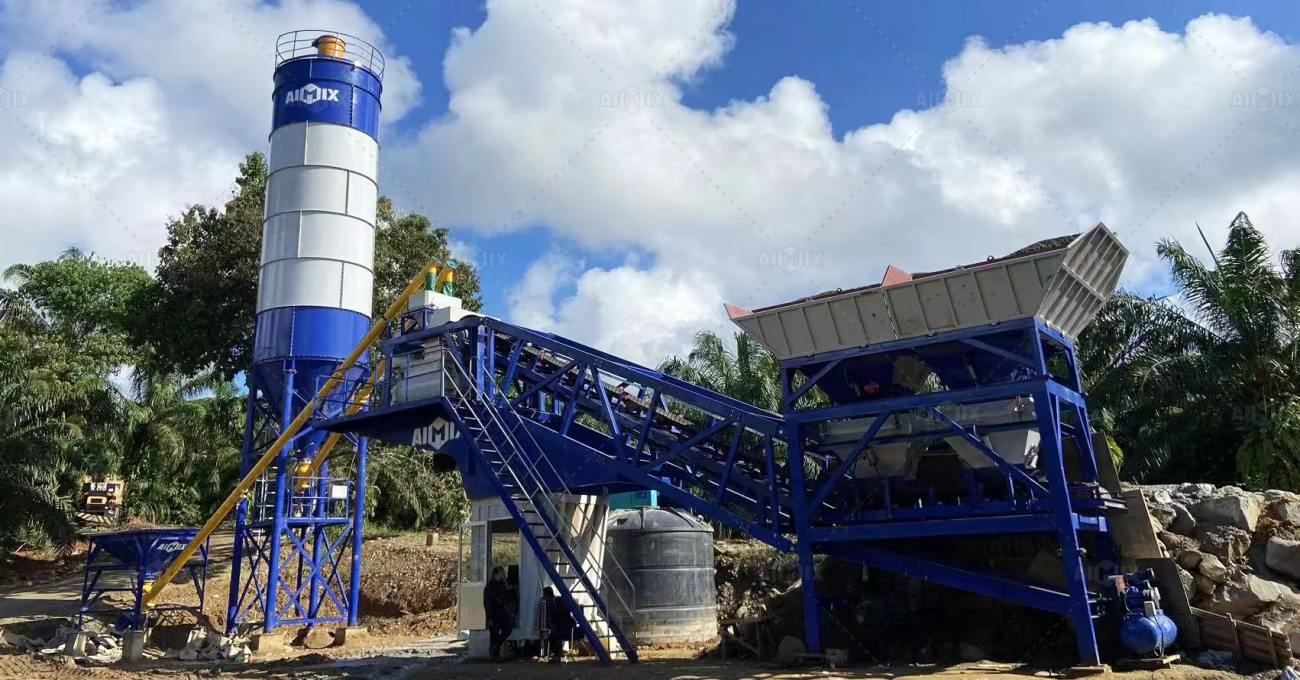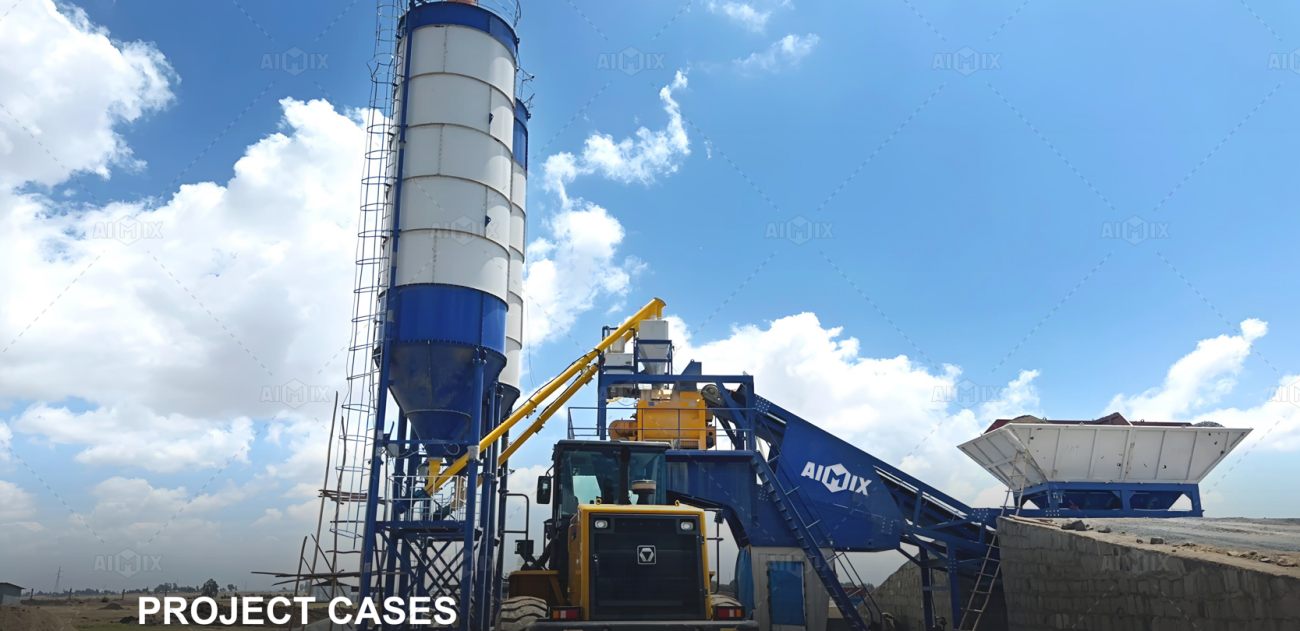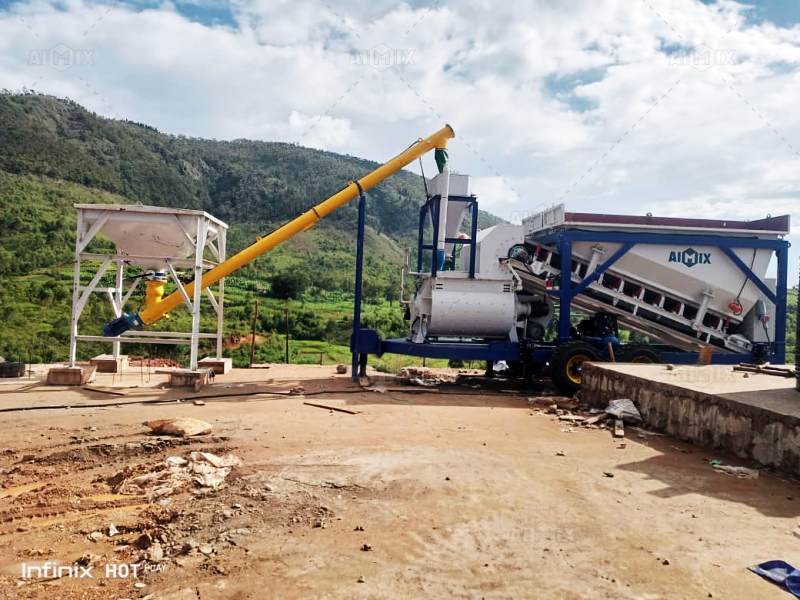As global construction demands continue to rise, so does the pressure on the industry to reduce its environmental footprint. One of the most transformative solutions in this journey is the mobile concrete mixer plant. Traditionally praised for its flexibility and speed, today’s mobile plants are also becoming champions of sustainability. From reduced emissions to efficient material use, the latest designs are incorporating advanced features that minimize environmental impact—without compromising performance.
This article explores the sustainable features found in modern mobile concrete mixer plant, how they compare to other types of concrete batching plant, and their advantages over stationary concrete mixing plants in eco-conscious construction.

Energy-Efficient Mixing Systems
At the heart of any concrete plant is the mixer. Mobile concrete mixer plants now come equipped with energy-efficient mixing systems that optimize power consumption. High-efficiency motors and variable frequency drives (VFDs) allow the mixer to adjust speed based on load requirements, using only the energy needed for the task. This not only reduces electricity use but also extends the lifespan of the equipment.
Compared to traditional stationary concrete mixing plants, which often run continuously at full capacity, mobile units can scale operations up or down based on real-time needs—avoiding unnecessary energy consumption.
On-Demand Production Reduces Waste
One of the key sustainability benefits of a portable batching plant is its ability to produce concrete on demand. This means less overproduction and fewer discarded batches, which are common in large-scale stationary plants where forecasting errors lead to surplus.
Because mobile plants are stationed closer to the job site, they can be loaded with precise material quantities and activated only when needed. This just-in-time production model significantly reduces waste and supports lean construction practices.
Water Recycling and Reduced Usage
Water is a critical but often overlooked resource in concrete production. Many mobile concrete mixer plant designs now feature closed-loop water recycling systems. These systems collect and treat wash water from mixer cleaning and reuse it in the next batch.
Additionally, newer systems use moisture sensors in the aggregates and mix to calculate exactly how much water is needed per batch—eliminating the guesswork and ensuring consistent quality with less water.

Modular and Low-Impact Design
Unlike fixed, large-footprint stationary concrete mixing plants, mobile concrete mixer plants are compact, modular, and easier to transport. Their setup requires minimal ground preparation and can often be completed without extensive concrete foundations or permanent structures.
This modularity not only shortens setup times but also minimizes land disturbance—making mobile plants ideal for projects in ecologically sensitive or protected areas. When a project is complete, the plant can be relocated with little to no environmental remediation required.
Integration with Smart Technologies
The integration of smart technology is playing a pivotal role in making mobile plants more sustainable. Many units now include:
-
Automated batching systems to eliminate human error and material waste
-
Real-time monitoring for power usage, emissions, and output efficiency
-
Remote diagnostics that reduce the need for frequent on-site maintenance visits
This data-driven approach optimizes operations and lowers the carbon footprint associated with both transport and maintenance.
Compatibility with Green Cement and Recycled Materials
As green construction materials become more mainstream, mobile concrete mixer plants are being engineered to handle a broader range of sustainable inputs. These include:
-
Low-carbon cement alternatives (e.g., fly ash, slag, and calcined clay)
-
Recycled aggregates sourced from demolition waste
-
Supplementary cementitious materials that reduce reliance on traditional Portland cement
The adaptability of mobile plants allows contractors to experiment with environmentally friendly mixes and fine-tune them based on specific site needs.

Reduced Transportation Emissions
Producing concrete on-site using a mobile mixer plant eliminates the need for long-haul concrete transport from a central batching facility. Fewer truck journeys mean lower emissions, reduced fuel consumption, and less traffic congestion—particularly beneficial in urban or congested environments.
In contrast, relying on stationary concrete mixing plants may require dozens of delivery trips per day, especially when the job site is far from the plant. The carbon savings from mobile production can therefore be significant.
Comparing Mobile with Other Types of Concrete Batching Plant
There are several types of concrete batching plant available today, including:
-
Stationary plants – ideal for high-volume, long-term projects
-
Portable batching plants – designed for mobility and quick setup
-
Compact plants – smaller footprint but fixed in location
-
Dry mix plants – mix materials without water until delivery
-
Wet mix plants – complete mixing on-site for better quality control
Mobile concrete mixer plants fall under the umbrella of portable batching plant types, offering a unique blend of flexibility, speed, and now, sustainability. They’re increasingly being selected not just for logistical convenience but also for environmental compliance and green building certifications.
Final Thoughts
Sustainability is no longer an optional feature—it’s a requirement for modern construction projects. Today’s mobile concrete mixer plant designs are responding to this challenge with a wide range of eco-conscious features, from energy-efficient systems and water recycling to smart controls and green mix compatibility.
Whether you’re working on a remote infrastructure project or seeking LEED-certified construction methods, investing in a mobile plant with sustainability in mind could deliver long-term operational and environmental value. Compared with other types of concrete batching plant, the modern portable batching plant stands out as a forward-thinking solution for the industry’s low-carbon future.